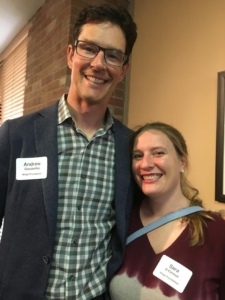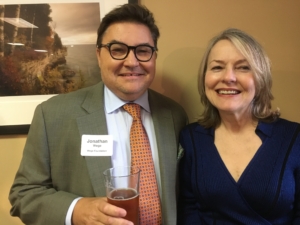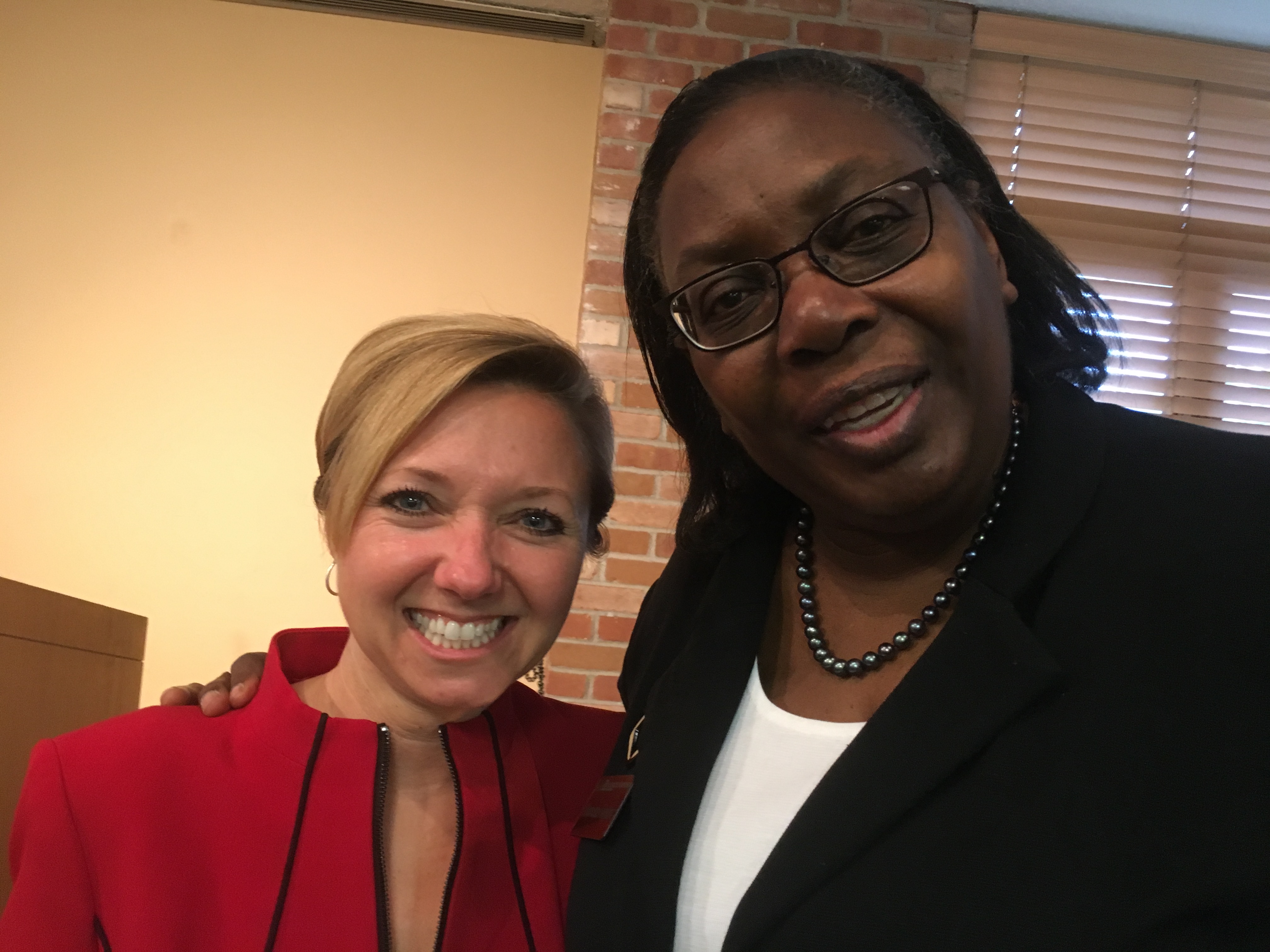Pictured above: Grand Rapids Mayor Rosalynn Bliss congratulates Dr. Taylor after the University of Michigan professor delivered The Wege Lecture at Aquinas.
Artist and Wege Foundation Trustee Chris Carter introduced Dorceta E. Taylor Ph.D., Director of Diversity, Equity & Inclusion at the University of Michigan School of Natural Resources & Environment, as the presenter for the 21st Annual Wege Foundation Speaker Series in early April at Aquinas College
Dr. Taylor’s Untold Stories of the Conservation Movement opened with poet Phyllis Wheatley who was brought to this country as a slave in 1761 as an eight-year old. Educated by her owners the Wheatleys, in 1773 Phyllis published a book of her poetry, the first African-American to publish in the colonies.
While Ralph Waldo Emerson and Henry David Thoreau are well known as nature writers, few Americans have ever heard of Phyllis whose poetry influenced them. These images from one of Wheatley’s poems could easily be mistaken for Emerson’s:
The morn awakes, and wide extends her rays, On ev’ry leaf the gentle zephyr plays, Ye shady groves, your verdant gloom display To shield your poet from the burning day. But the ‘burning day’ for Wheatley as a slave would have been quite different than for the Cambridge poets.
Dr. Taylor also recounted the environmental abuse inflicted by the early settlers when they stole the Native tribes’ lands because the white sportsmen believed it was their right to have good hunting grounds. She talked about the Trail of Tears in 1838 when President Andrew Jackson drove the Cherokees off their ancestral homelands in the Southeast forcing them on a brutally cruel trek west to Oklahoma.
The inequity for minorities is not over in the environmental world, Dr. Taylor said, when 38% of the population are minorities but they hold only 15% of the jobs in environmental organizations. “You need to go out and recruit them,” she told the attentive audience.



